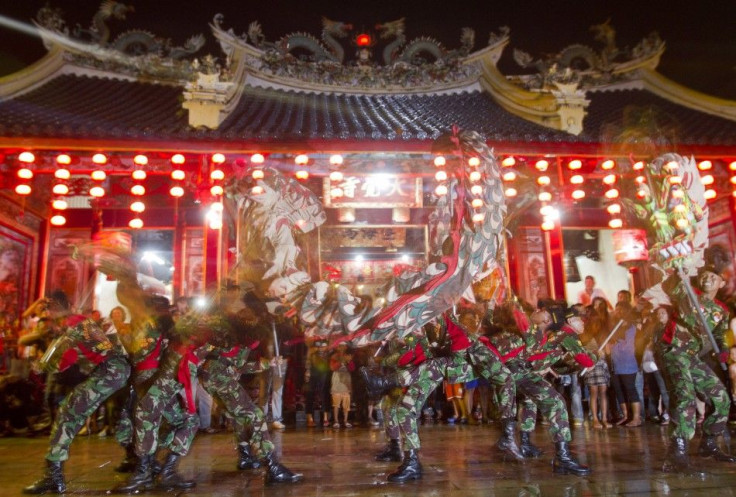Chinese New Year 2012: The Indonesian Story

The Chinese New Year has special significance for the ethnic Chinese population of Indonesia, where they have long existed as a despised and envied minority group.
Only recently has Indonesia removed measures that prohibited the exhibition of Chinese language and culture, particularly under the brutal regime of President Suharto. In 2003, Indonesian president Megawati Sukarnoputri recognized the Chinese Lunar New Year as a national holiday, paving the way for more open expressions of Chinese cultural values.
However, such openness was once unthinkable.
Myra Sidharta, a well-known Chinese-Indonesian, said: “The Chinese have been treated with hostility for some time,” according to The Christian Science Monitor newspaper.
Indeed, the failed 1965 coup (as depicted in the famous movie “The Year of Living Dangerously” with Mel Gibson) was widely blamed by Indonesian officials on the country’s Communist Party which allegedly had financial ties to Mainland China. This incident hardened attitudes against the local Chinese population, leading the government to further repress the use of Chinese language or the display of Chinese religious and cultural heritages. Chinese people were also forced to adopt Indonesian names.
It was not until 1998 when Suharto resigned that the ethnic Chinese in Indonesia begin to enjoy some cultural freedoms. But such ease of restrictions came at a heavy price – in the wake of Suharto’s passing, anti-Chinese riots swept across the nation in May of that year, resulting in the rape and murder of thousands of people. For years, resentment had been building against the ethnic Chinese and their perceived economic supremacy in Indonesia.
Indeed, a recent report in The Jakarta Post newspaper highlighted the significant prejudice still faced by Chinese people in the country.
Hermawi F. Taslim, a prominent Chinese-Indonesian who is also deputy chairman of the National Awakening Party, told the paper that Chinese still live in segregated enclaves of the country, due largely to perceived hostility from the majority populace.
Still, other Chinese-Indonesians point to steps taken by the government to ease discriminatory policies against the minority group.
“There are no more obstacles, except for their own fear they could face problems when they enter the public sector,” said Esther Indahyani, an Indonesian human rights activist who is also of Chinese descent, according to the Post.
“Don’t only rely and wait on the current government to work for them in creating a better environment,” she suggested to her fellow Chinese.
Major General Sudrajat, the former Indonesian ambassador to China, advised the Chinese people in the country to become more politically active.
“The May 1998 tragedy would unlikely reoccur, but the Chinese community should get out of their bubble...,” he said.
“Do not discriminate yourself if you don‘t want to be discriminated against by others.”
According to the 2010 census, Chinese account for less than 4 percent of Indonesia’s population of some 237-million people.
© Copyright IBTimes 2024. All rights reserved.





















